
Find Help
More Items From Ergsy search
-

Who is at risk of developing shingles?
Relevance: 100%
-

Who is at risk of developing shingles?
Relevance: 78%
-

Is shingles contagious?
Relevance: 64%
-

What is Shingles?
Relevance: 64%
-

What causes shingles?
Relevance: 63%
-
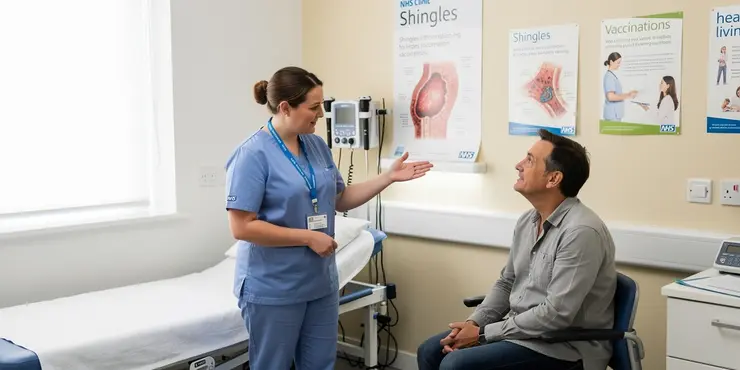
Is shingles contagious?
Relevance: 62%
-
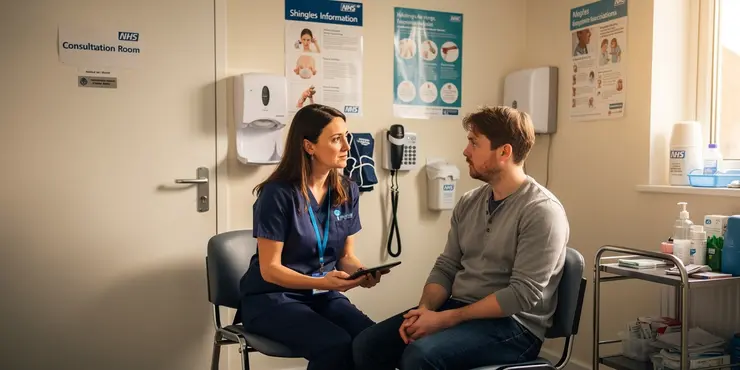
What is shingles?
Relevance: 62%
-

What causes shingles?
Relevance: 61%
-
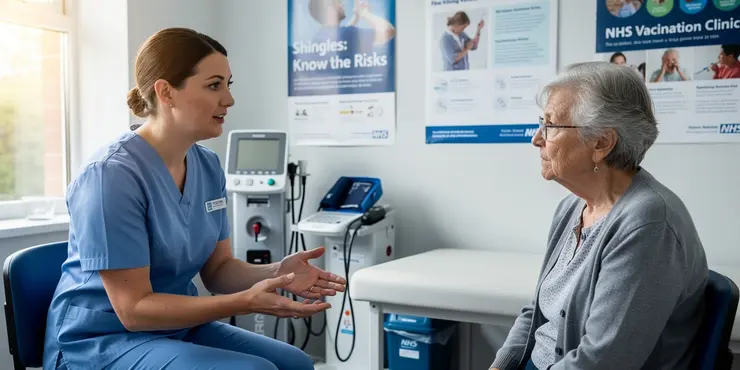
Are there any complications associated with shingles?
Relevance: 60%
-

Can shingles be prevented?
Relevance: 60%
-

Can stress trigger shingles?
Relevance: 59%
-

Can shingles be prevented?
Relevance: 59%
-
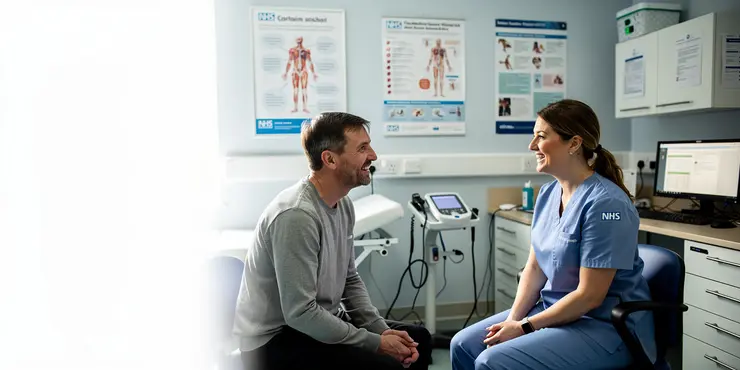
Can stress trigger shingles?
Relevance: 58%
-
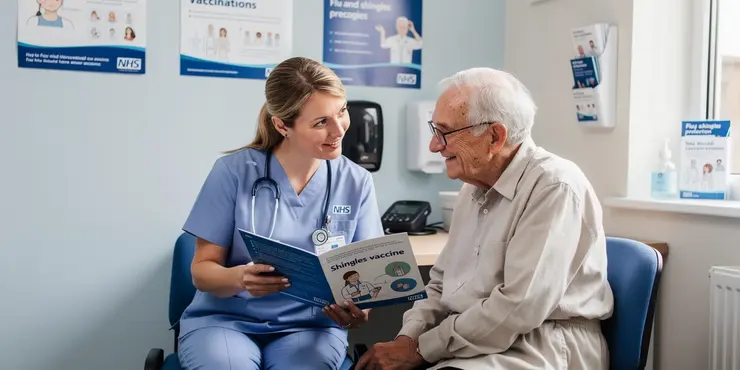
Is the shingles vaccine safe?
Relevance: 57%
-

Can the shingles vaccine cause chickenpox?
Relevance: 56%
-

Can the shingles vaccine cause chickenpox?
Relevance: 54%
-

What are the symptoms of shingles?
Relevance: 54%
-

Are there any complications associated with shingles?
Relevance: 54%
-
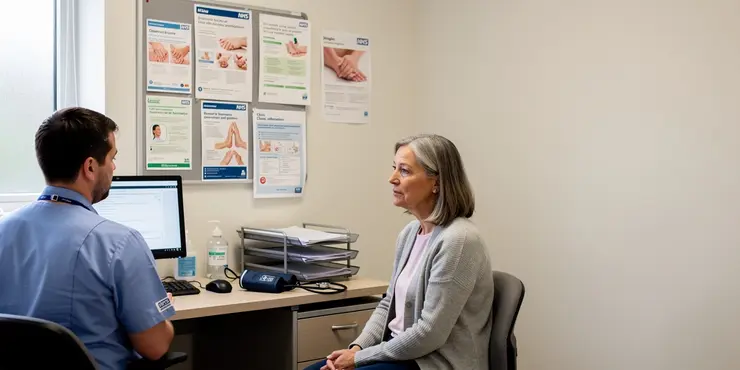
What treatments are available for shingles?
Relevance: 54%
-

What treatments are available for shingles?
Relevance: 54%
-

At what age should one get the shingles vaccine?
Relevance: 53%
-
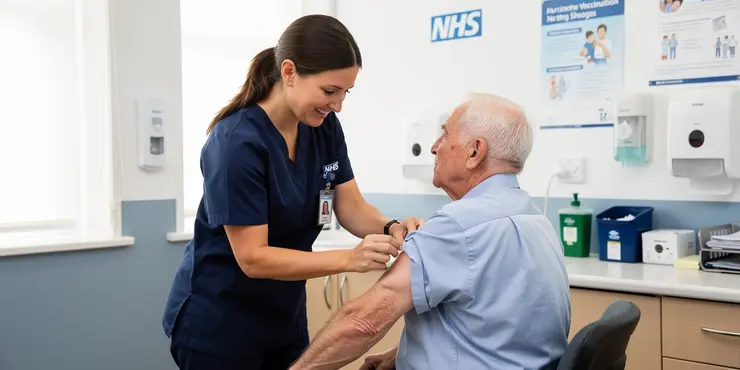
At what age should one get the shingles vaccine?
Relevance: 53%
-
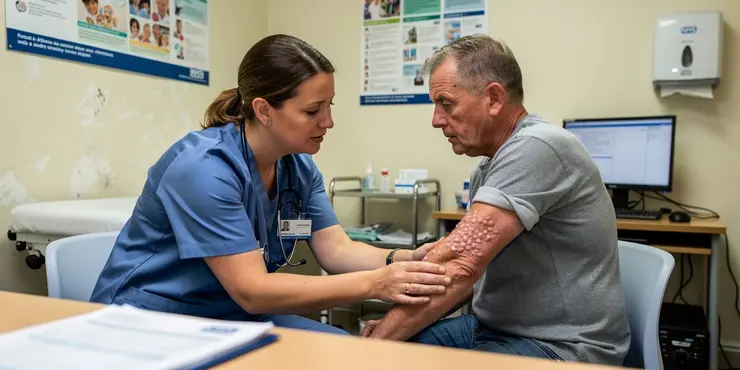
How is shingles diagnosed?
Relevance: 52%
-

Who is at risk of developing eczema?
Relevance: 50%
-

Who is at risk for developing BPH?
Relevance: 50%
-

Who is at risk of developing SAD?
Relevance: 49%
-
Who is at risk for developing an eating disorder?
Relevance: 47%
-

Who is at risk of developing Crohn's disease?
Relevance: 46%
-

Who is at risk of developing Alzheimer's disease?
Relevance: 45%
-

Who is at risk of developing chronic fatigue syndrome?
Relevance: 45%
-
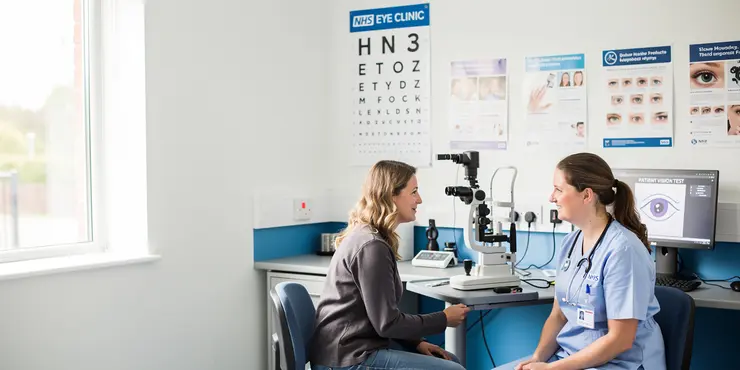
Are there any risk factors for developing hypotony?
Relevance: 44%
-

What are risk factors for developing sleep apnea?
Relevance: 43%
-
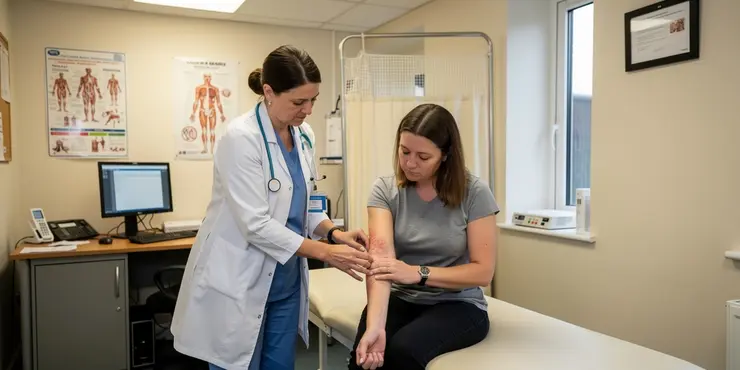
How is shingles diagnosed?
Relevance: 39%
-
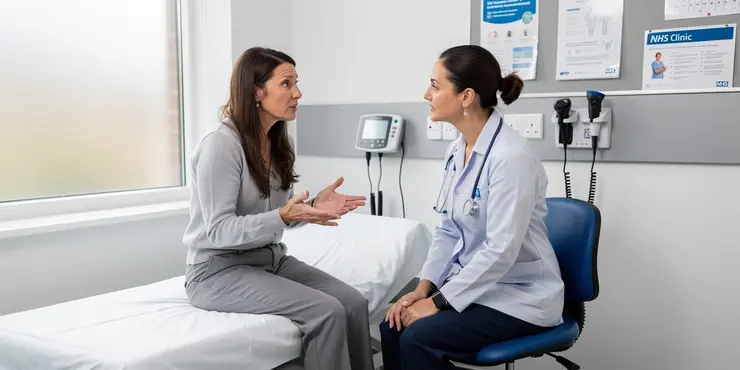
What should I do if I think I have shingles?
Relevance: 38%
-

How long does a shingles outbreak last?
Relevance: 36%
-

How long does a shingles outbreak last?
Relevance: 36%
-

What is postherpetic neuralgia?
Relevance: 36%
-

What is postherpetic neuralgia?
Relevance: 36%
-
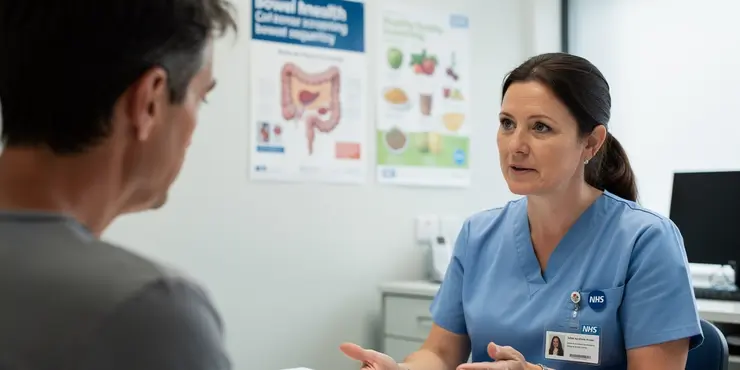
What role does diet play in the risk of developing bowel cancer?
Relevance: 35%
-
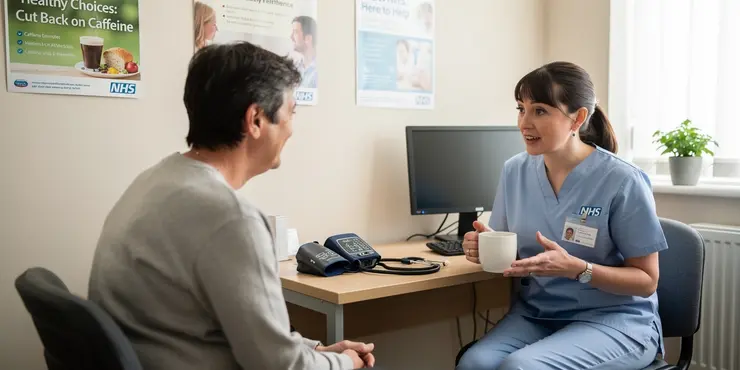
Does drinking coffee every morning increase the risk of developing high blood pressure?
Relevance: 32%
Introduction
Shingles, also known as herpes zoster, is a viral infection that causes a painful rash. It is triggered by the reactivation of the varicella-zoster virus, the same virus responsible for chickenpox. Once a person has recovered from chickenpox, the virus remains dormant in nerve tissue and may reactivate later as shingles. Understanding who is at risk of developing shingles can help in taking preventative measures.
Age
One of the primary risk factors for developing shingles is age. The likelihood of experiencing shingles increases significantly with age. People over the age of 50 are more susceptible to developing shingles, with the risk increasing further in older age groups. This is believed to be due to a natural decline in immune function as people get older.
History of Chickenpox
Anyone who has had chickenpox is at risk of developing shingles. This is because the varicella-zoster virus stays dormant in the body after the chickenpox infection resolves. While the reactivation of the virus could happen at any time, it is more common in older adults or individuals with weakened immune systems.
Weak Immune System
Individuals with weakened immune systems are at higher risk of developing shingles. This includes those with conditions such as HIV/AIDS, cancer patients undergoing chemotherapy, or people taking immunosuppressive medications, such as steroids or drugs used after organ transplants. A weakened immune system makes it harder for the body to keep the virus dormant.
Stress and Trauma
High levels of stress and trauma can also increase the risk of shingles. Stress may weaken the immune system, providing an opportunity for the virus to reactivate. Additionally, physical trauma to a nerve or the area where the virus lies dormant may trigger an outbreak.
Preventative Measures
Vaccination is available to help prevent shingles. The shingles vaccine is recommended for people aged 70 to 79 years old in the UK, though it is available to those starting at age 50 in certain cases. It can significantly reduce the risk of developing shingles and its complications. It's advisable for those eligible to discuss vaccination with their GP.
Conclusion
While shingles can occur in anyone who has had chickenpox, certain factors increase the risk. Older adults, those with a history of chickenpox, individuals with weakened immune systems, and those experiencing high stress levels or trauma are particularly at risk. Understanding these risk factors can guide preventative strategies, such as vaccination, to reduce the likelihood of developing this painful condition.
What is shingles?
Shingles is a virus that causes a sore rash. The same virus also causes chickenpox. After you get better from chickenpox, the virus stays hidden in your body. It can come back later as shingles. Knowing who might get shingles can help to prevent it.
Getting older
You are more likely to get shingles as you get older. This is because your body’s defenses get weaker with age. People over 50 years old have a higher chance of getting shingles.
Had chickenpox before
If you had chickenpox, you can get shingles. The virus stays in your body even after chickenpox is gone. It is more common in older people or people with weak body defenses.
Weak body defenses
If your body’s defenses are weak, you are more likely to get shingles. This includes people with illnesses like HIV/AIDS, people having cancer treatment, or people taking certain medicines. These medicines can make it hard for the body to keep the virus asleep.
Stress and injury
Lots of stress or injury can also make shingles more likely. Stress can make your body’s defenses weak. This gives the virus a chance to wake up. If you hurt a nerve, it might also cause shingles to come back.
How to prevent shingles
You can get a vaccine to help stop shingles. In the UK, it is given to people aged 70 to 79 years old. In some cases, it can be given to people starting at age 50. The vaccine can lower the chance of getting shingles. Talk to your doctor about the vaccine.
Summary
Anyone who had chickenpox can get shingles, but some people are more likely to get it. Older people, people who had chickenpox before, people with weak body defenses, and people with high stress are more at risk. Knowing this can help you take steps like getting vaccinated to avoid shingles.
Frequently Asked Questions
Useful Links
This website offers general information and is not a substitute for professional advice.
Always seek guidance from qualified professionals.
If you have any medical concerns or need urgent help, contact a healthcare professional or emergency services immediately.
Some of this content was generated with AI assistance. We’ve done our best to keep it accurate, helpful, and human-friendly.
- Ergsy carfully checks the information in the videos we provide here.
- Videos shown by Youtube after a video has completed, have NOT been reviewed by ERGSY.
- To view, click the arrow in centre of video.
- Most of the videos you find here will have subtitles and/or closed captions available.
- You may need to turn these on, and choose your preferred language.
- Go to the video you'd like to watch.
- If closed captions (CC) are available, settings will be visible on the bottom right of the video player.
- To turn on Captions, click settings .
- To turn off Captions, click settings again.
More Items From Ergsy search
-

Who is at risk of developing shingles?
Relevance: 100%
-

Who is at risk of developing shingles?
Relevance: 78%
-

Is shingles contagious?
Relevance: 64%
-

What is Shingles?
Relevance: 64%
-

What causes shingles?
Relevance: 63%
-

Is shingles contagious?
Relevance: 62%
-

What is shingles?
Relevance: 62%
-

What causes shingles?
Relevance: 61%
-

Are there any complications associated with shingles?
Relevance: 60%
-

Can shingles be prevented?
Relevance: 60%
-

Can stress trigger shingles?
Relevance: 59%
-

Can shingles be prevented?
Relevance: 59%
-

Can stress trigger shingles?
Relevance: 58%
-

Is the shingles vaccine safe?
Relevance: 57%
-

Can the shingles vaccine cause chickenpox?
Relevance: 56%
-

Can the shingles vaccine cause chickenpox?
Relevance: 54%
-

What are the symptoms of shingles?
Relevance: 54%
-

Are there any complications associated with shingles?
Relevance: 54%
-

What treatments are available for shingles?
Relevance: 54%
-

What treatments are available for shingles?
Relevance: 54%
-

At what age should one get the shingles vaccine?
Relevance: 53%
-

At what age should one get the shingles vaccine?
Relevance: 53%
-

How is shingles diagnosed?
Relevance: 52%
-

Who is at risk of developing eczema?
Relevance: 50%
-

Who is at risk for developing BPH?
Relevance: 50%
-

Who is at risk of developing SAD?
Relevance: 49%
-
Who is at risk for developing an eating disorder?
Relevance: 47%
-

Who is at risk of developing Crohn's disease?
Relevance: 46%
-

Who is at risk of developing Alzheimer's disease?
Relevance: 45%
-

Who is at risk of developing chronic fatigue syndrome?
Relevance: 45%
-

Are there any risk factors for developing hypotony?
Relevance: 44%
-

What are risk factors for developing sleep apnea?
Relevance: 43%
-

How is shingles diagnosed?
Relevance: 39%
-

What should I do if I think I have shingles?
Relevance: 38%
-

How long does a shingles outbreak last?
Relevance: 36%
-

How long does a shingles outbreak last?
Relevance: 36%
-

What is postherpetic neuralgia?
Relevance: 36%
-

What is postherpetic neuralgia?
Relevance: 36%
-

What role does diet play in the risk of developing bowel cancer?
Relevance: 35%
-

Does drinking coffee every morning increase the risk of developing high blood pressure?
Relevance: 32%


